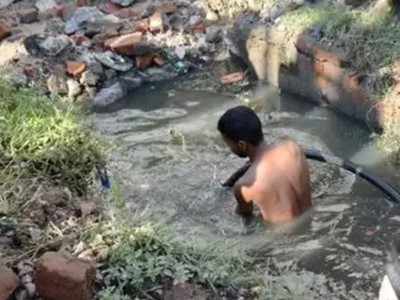The Hindu 04.03.2011
‘Water is the property of the commons’
Opposition to the State’s water policy, which has been simmering since
2002 when the Karnataka Urban Drinking Water and Sanitation Policy was
passed, came to the boil again last week when organisations launched an
agitation against the visit of the U.S. Water Technology Trade Mission
to the city. Kshithij Urs, among the leading members in the People’s
Campaign for Right to Water, speaks to The Hindu on key issues. Excerpts:
Urban Development Minister S. Suresh Kumar has responded to your
campaign by assuring to take a relook at the water policy of 2002
Certain comments made on his blog don’t suggest he’s
serious (about it). He has also sought to know from us where the money
to sustain free and efficient water supply will come from. The fact is
the Government has spent more money on setting up infrastructure for
private water supply companies (in parts of north Karnataka and Mysore)
than it spent on water supply earlier. If the Minister is really
serious, let him initiate legislative proceedings to make water
privatisation illegal as in The Netherlands, Bolivia and Paraguay.
What are the problems with the 2002 policy, which informed a list of
amendments in 2005 to the Karnataka Municipal Corporations Act?
Its preamble says “ensure universal coverage of water
and sanitation services that people want and are willing to pay for”.
This statement is contradictory: it says there should be universal
supply but then also says it is conditional to payment. Supply should be
either universal or conditional. Its basic spirit is that if you want
water for a private swimming pool, you can get it as long as you pay the
tariff. But if you want water to drink, you cannot get it if you can’t
pay up. It goes against the basic concept of water being the property of
the commons.
What has been the experience with privatisation in parts of Hubli-Dharwad, Belgaum, Gulbarga and Mysore?
Certain municipal wards in these places were chosen as
demonstration zones where pilot projects were conducted. The Government
did everything to ensure that the private companies succeeded. It paid
for infrastructure and supplied its own staff to them. It ensured there
was non-stop supply of water to these zones even while the other parts
of the city suffered from shortage. The zones were chosen in such a way
that even if power went off, water would flow through a gradient
network. .
Why did you oppose the U.S. Water Technology Trade Mission? Its
representatives said that they are interested in primarily offering
wastewater treatment solutions. They don’t mention privatisation or
management of water supply.
The U.S. Department of Commerce website states that the
mission intends to influence policy change through talks with urban
local bodies. It states that the companies in the mission will “find the
best opportunities in sanitation, urban water supply improvement,
rainwater capture, and municipal waste treatment”. What they have said
in the press note is a lie.
The Government has spent more on setting up infrastructure for private water supply companies, Kshithij Urs tells Sudipto Mondal


